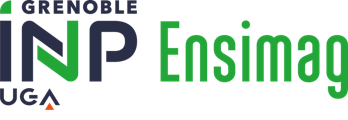Number of hours
- Lectures 24.0
- Projects -
- Tutorials -
- Internship -
- Laboratory works 12.0
- Written tests -
ECTS
ECTS 3.0
Goal(s)
This course concerns techniques for constructing systems which observe and analyze objects, scenes and activities from images. It build competence in techniques that are fundamental to many new forms of man-interaction as well as to the design of computer vision systems used for industrial automation, inspection, monitoring and surveillance. These techniques are equally useful in the analysis of medical, aerial and satellite images.
Jean-Sebastien FRANCO
Content(s)
The course is composed of 16 lessons of 1h30 and 8 practical sessions, with the four following themes:
1. Perception
- Perception of light and colour
- Image filtering, contour détection, interest points
- Motion perception
2. Vision and Neural networks
- Main neural architectures used in computer vision
- Principles for training such networks
- Applicability to base/standard problems, object detection
2. Camera Geometry
- Projective Geometry and Applications
- Homographies and image alignment
- Image formation, camera calibration
- Image mosaics
3. Shape and Motion Estimation
- Silhouette-based 3D reconstruction
- 3D triangulation from multiple views
- Multi-view stereo, differential rendering
Knowledge of linear algebra and calculus is assumed.
Knowledge of image processing are useful but not required.
If requested by a majority of students, the course presentations will be made in English.
The course grade is determined by a 2 hour written exam, documents and calculator permitted, communicating devices not permitted; the second session is the same format.
Practical sessions are graded.
- MCC en présentiel **
N1 = 0.7 * E1 + 0.3 P
N2 = 0.7 * E2 + 0.3 P
E1 = examen écrit
E2 = examen écrit
P = rendus de TP / projet
- MCC en présentiel **
- MCC en distanciel **
N1 = 0.7 * E1 + 0.3 P
N2 = 0.7 * E2 + 0.3 P
E1 = examen écrit à distance
E2 = examen écrit à distance
P = rendus de TP / projet
- MCC en distanciel **
The course exists in the following branches:
- Curriculum - Math. Modelling, Image & Simulation - Semester 9
Course ID : 5MMVORF
Course language(s): 
The course is attached to the following structures:
You can find this course among all other courses.
Richard Szeliski. 2010. Computer Vision: Algorithms and Applications (1st ed.). Springer-Verlag New York, Inc., New York, NY, USA.
Richard Hartley and Andrew Zisserman. 2003. Multiple View Geometry in Computer Vision (2 ed.). Cambridge University Press, New York, NY, USA.



